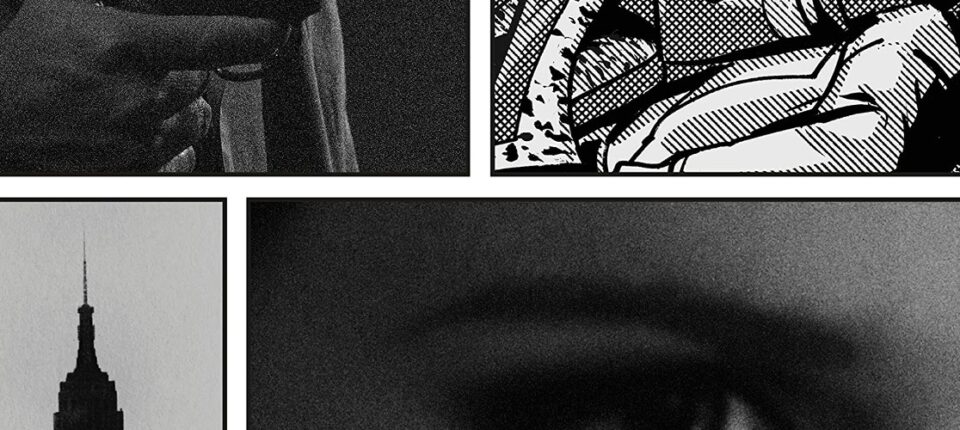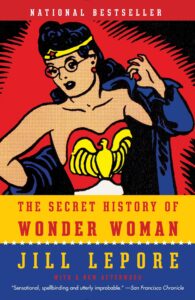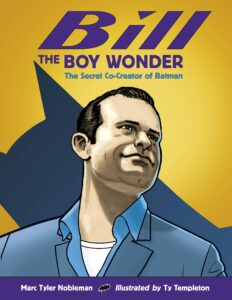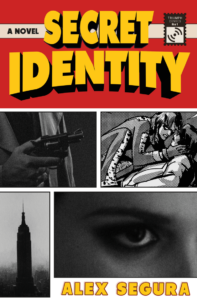When I decided, a few years ago, that my next crime novel would be a noir murder mystery set in the 1975 comic book scene of New York City, I honestly thought it’d be…well, easier. I figured I had the knowledge, based in my almost-two decades of experience working in comics, to get the basics on the page. I was wrong—and that’s often the most fun part about writing. Realizing you have to dig deeper if you really want your book to sing.
I wanted my book to be more than just a typical mystery set in the world of comics—I wanted to create a sense of verisimilitude that would allow the reader to suspend their disbelief long enough to think that, maybe, just maybe, there had once been a Carmen Valdez, and she had created a street-level crimefighter known as the Legendary Lynx. That required a level of reading, re-reading, and first-person interviews that went beyond anything I’d done before. It also meant going back and spending lots of time with a handful of books and authors I love, to make sure I was in the right headspace to stick the landing for a book that, honestly, I’ve been working toward writing since I was in college.
So, without further delay, here are the nonfiction books about comics that played a part in Carmen’s story in Secret Identity, and a novel and comic book that were immensely influential, too. Call it Secret Identity’s #comicbookdna, if you will.

My Captain America: A Granddaughter’s Memoir of a Legendary Comic Book Artist
By Megan Margulies
I read Megan’s book as I was writing Secret Identity, in preparation for an event together. I didn’t expect it to resonate with me as much as it did, nor did I anticipate the influence it’d have on my novel—but Megan’s stories of her youth in New York City and her powerful relationship with Joe Simon, co-creator of Captain America, ended up finding their way into Carmen’s own life, and her dynamic with her Cuban father.

James Warren: Empire of Monsters
By Bill Schelly
This was a tough one to find, but worth the digging. James Warren was a complicated, fascinating guy, and this bio, by comics super-fan Bill Schelly, is loaded with memorable stories. The comic book industry is packed with characters and complicated people, and this is a great example of that.

The Queens of Animation
By Nathalia Holt
Holt’s comprehensive, personality-driven saga of the Disney animators lost to history was impossible to put down, and provided me with lots of insight and inspiration when it came to Carmen and her unsung role at Triumph Comics.
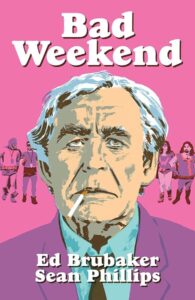
Bad Weekend
By Ed Brubaker and Sean Phillips
A short graphic novella set in the gritty, Brubaker/Phillips’ sprawling Criminal universe, Bad Weekend is a tour through the seedy side of modern comics, with nods to times past.
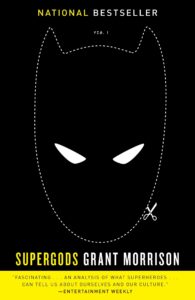
Supergods
By Grant Morrison
Few people are more fascinating than Morrison, the writer of legendary comics like All-Star Superman, Batman RIP, Seven Soldiers of Victory, Animal Man, New X-Men and so many more. This book is a guided tour of his brain, and his take on the modern mythology that is superhero comics and the media that springs from them.
The Secret History of Wonder Woman
By Jill Lepore
Bill the Boy Wonder
By Marc Tyler Nobleman and Ty Templeton
Lepore, a magnificent historian and writer, dives into the origins of Wonder Woman – including the women who influenced the character’s creator, William Moulton Marston. Similarly, but in graphic novel form (and an accompanying documentary), Nobleman and Templeton tell the story of Batman’s forgotten co-creator, Bill Finger, and his sad end and the quest to properly credit him for his work decades after his death. Both told stories that are sadly not uncommon in comics—creators losing proper attribution for their work or toiling in secret. Two elements that were prominent in Secret Identity.

The Ten-Cent Plague
By David Hajdu
Few books comprehensively cover the 1950s collapse of the comic book industry—under pressure from the government, content watchdogs, and a certain Dr. Wertham—better than Hadju, who smartly focuses on the people—like EC head honcho Bill Gaines and his many talented creators—and their stories. He contextualizes the potential lost, not just in terms of jobs, but story, making you wonder what kind of a comic book industry we’d have now if censorship hadn’t reared its head.

Becoming Superman
By J. Michael Straczynski
JMS—creator of Babylon 5 and writer of a number of major comics, including Thor, Amazing Spider-Man, Rising Stars, Superman, and more—has a track record any writer would fawn over, but his story is one loaded with tragedy and sadness, but capped by a resilience and determination that’s awe-inspiring.
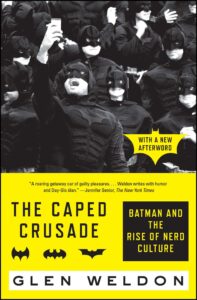
The Caped Crusade
By Glen Weldon
Weldon, a savvy and talented cultural critic for NPR, is also an unabashed fan of Batman in every iteration. His history of Batman’s place in pop culture is bursting with information, and it’s presented in his typical, witty style—a perfect book for a Bat-obsessive, but welcoming enough to hand to anyone. I was particularly interested, when revisiting this, to see how Batman’s source material was tweaked and changed for other media. That doesn’t play out in Secret Identity, per se…but who knows where it might?
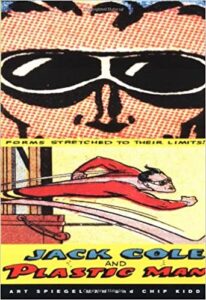
Jack Cole and Plastic Man: Forms Stretched to Their Limits
By Art Spiegelman and Chip Kidd
The history of comics is loaded with tragic tales—lost potential, suicide, misery, you name it. One story in particular remains haunting. Jack Cole, in his prime, could have risen to rival icons like Will Eisner, but his own demons won out. While no character in Secret Identity is directly based on a living person, this stylistic and brief Cole spotlight definitely helped me shape some of the more memorable parts of Carmen’s supporting cast, particularly Doug Detmer.
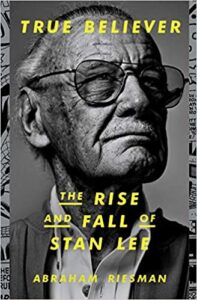
True Believer: The Rise and Fall of Stan Lee
By Abraham Riesman
In this powerhouse biography of comic book legend Stan Lee, Riesman demystifies the man behind the “The Man,” and digs into previously ignored periods of his life, including his Jewish roots and his time post-Marvel.
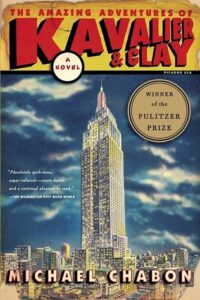
The Amazing Adventures of Kavalier & Clay
By Michael Chabon
Without Kavalier & Clay there would be no Secret Identity, full stop. I remember being completely enamored by Chabon’s work in college, and feeling so seen by his third novel, which blended golden age comics with the character-driven and complex narratives he’d already gotten a name for. The idea to blend comics with a novel came from reading this book, and wondering what the comics featuring Kavalier and Clay’s creation, The Escapist, would look like. Dark Horse eventually published those, too—but impatient youth that I was, i wanted them embedded in the novel!
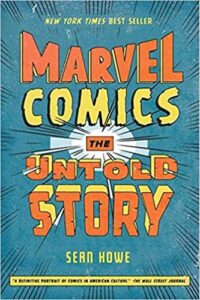
Marvel Comics: The Untold Story
By Sean Howe
Last, but certainly not least, is this stone cold classic. A whirlwind tour of Marvel’s history that touches on the company’s rocky beginnings to its creative birthquake in the 60s up through recent memory. Howe’s a gifted writer, and is clearly fond of the comics of the 1970s. I revisited this entire book while thinking about Secret Identity, and found some meaningful inspiration from those chapters in particular.
***

